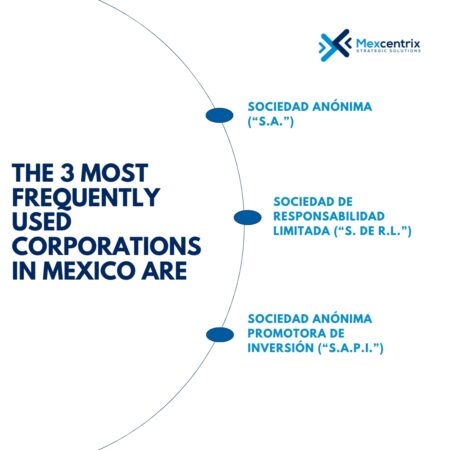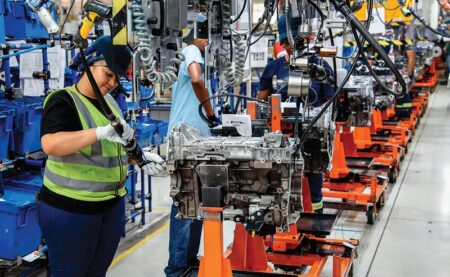How to Incorporate a Company in Mexico
Starting a business in Mexico
Incorporating a company from abroad is a complicated task if you do not count with personnel in Mexico with know- how and experience in this process and who can submit all the paperwork required before the public notary and authorities. As each country count with different processes and regulations for company incorporation, it is important to learn beforehand about the process to know what to expect.
Mexico allows foreigners to incorporate and operate companies in Mexico without limitation in most cases, nevertheless, some activities in Mexico are restricted for foreigners.
Steps for Incorporating a Company in Mexico
The main steps for incorporating a company in Mexico are:
Determining the type of entity.
The 3 most frequently used corporations in Mexico are:
- Sociedad Anónima (“S.A.”).
- Sociedad de Responsabilidad Limitada (“S. de R.L.”)
- Sociedad Anónima Promotora de Inversión (“S.A.P.I.”)
Contacting with an expert is always important to receive advice on which type of entity is best for your company, in some cases even incorporating a company is not needed for establishing operations in Mexico, therefore it is always important to contact the experts, such as Mexcentrix, who counts with legal advisors that can provide advice and consulting on this topic.
Following on determining the type of entity, the company must determine the corporate name of the new entity, which must be authorized by the Ministry of Economy.
Once the name of the new entity is authorized the company shall proceed with the drafting of the bylaws, which must include among others:
- Name of the company and its address.
- Object of the company: You should include the corporate purpose and the main activities of your business in detail, and every other activity related to the business that the company will carry on.
- Name and data about shareholders/ partners, including number and percentage of ownership. Under the Mexican law all the three abovementioned entities must have at least minimum two shareholders/ partners.
- The partners must appoint the corporations management (either a Board of Managers or a Sole Manager).
- Name of the Statuory Auditor (Comisario)
- Rules on profit distribution
- Powers of attorney granted to individuals: When the new company has foreign shareholders/ partners it is important and recommended to appoint someone in Mexico to appear before the public notary and perform other administrative tasks before the authorities. If the power of attorney is granted to a foreigner, it must be apostilled/ legalized in the country of origin. Afterwards, it must be translated to Spanish by an official translator and notarized in Mexico.
- Characteristics and organization of annual partners/ shareholders meeting.
- A social capital and nationality chapter which must be included when the shareholders/ partners are foreigners.
- Causes and procedure for dissolution or liquidation.
Bylaws signature
- The signature of the by-laws must take place in Mexico, in the State where the company has been incorporated. Incorporating shareholders must appear personally or represented through powers of attorney before the public notary.
- The new company must have a physical address in Mexico for incorporations purposes which can be subsequently changed.
- Additionally, if it’s the case a copy of organizational documents duly notarized and certified by Apostille or legalized, must be provided.
Registration Before Authorities
- Once incorporated, the first step is to register the new company before the Public Registry of Commerce (Registro Público de Comercio).
- Afterwards the company must be registered in the Tax Administration Service (SAT) in order to obtain its tax id (RFC).
- If the company counts with foreign shareholders/partners shall be registered before the National Registry of Foreign Investments (RNIE)
- As most companies hire employees they should register before before the Mexican Institute of Social Security (IMSS) and the Institute of National Housing Fund for Workers (INFONAVIT).

Do you have any doubts regarding the company incorporation process in Mexico? Feel free to contact us, we have helped several of foreign companies to throught the incorporation process in Mexico and to start operations.






 Source:
Source: 
